Regulating these 5 sleep hormones can help you fall asleep fast and stop you waking up at night
Your hormones help you fall asleep fast — here's how
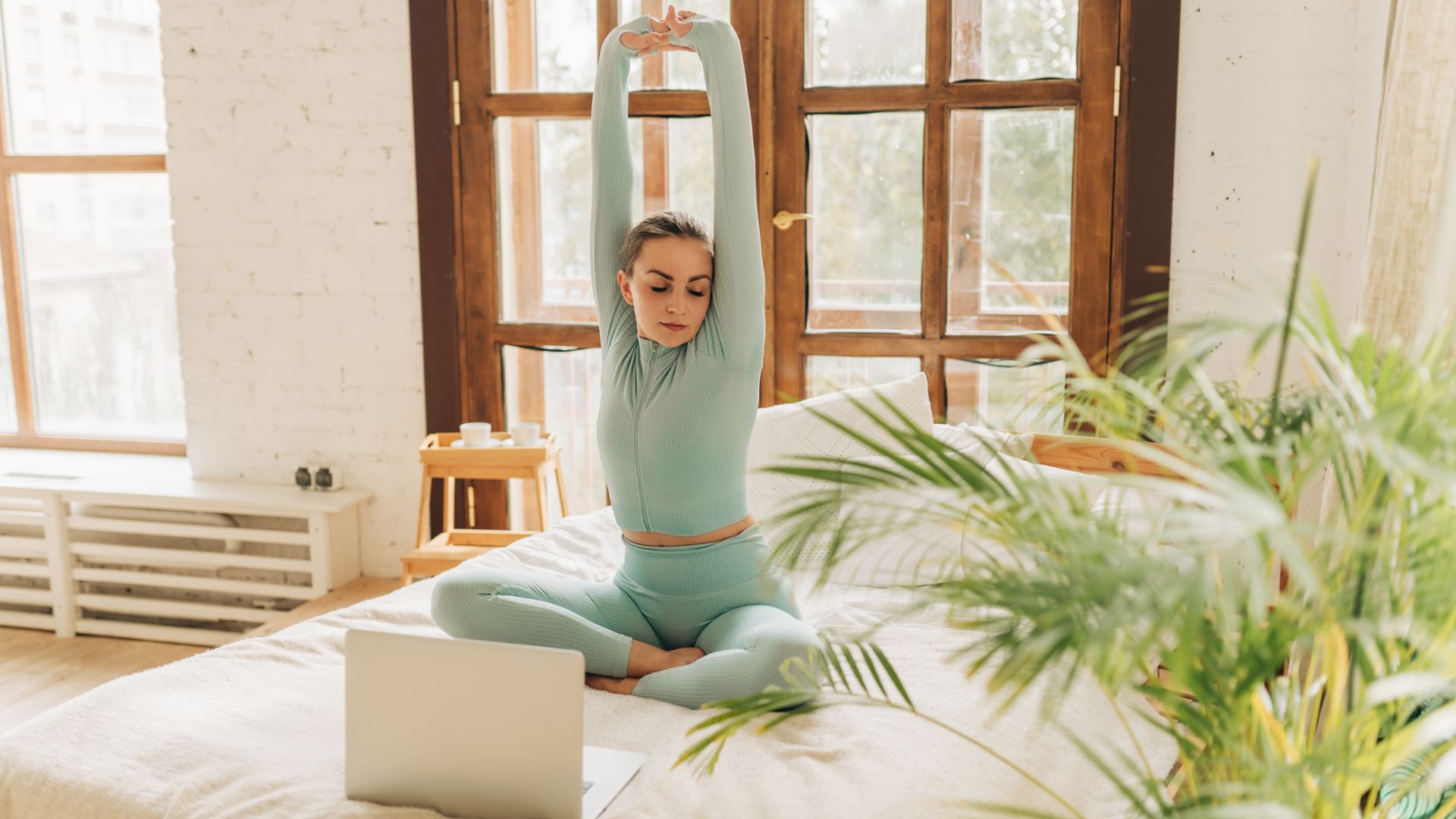
Here at Tom’s Guide our expert editors are committed to bringing you the best news, reviews and guides to help you stay informed and ahead of the curve!
You are now subscribed
Your newsletter sign-up was successful
Want to add more newsletters?

Daily (Mon-Sun)
Tom's Guide Daily
Sign up to get the latest updates on all of your favorite content! From cutting-edge tech news and the hottest streaming buzz to unbeatable deals on the best products and in-depth reviews, we’ve got you covered.

Weekly on Thursday
Tom's AI Guide
Be AI savvy with your weekly newsletter summing up all the biggest AI news you need to know. Plus, analysis from our AI editor and tips on how to use the latest AI tools!

Weekly on Friday
Tom's iGuide
Unlock the vast world of Apple news straight to your inbox. With coverage on everything from exciting product launches to essential software updates, this is your go-to source for the latest updates on all the best Apple content.

Weekly on Monday
Tom's Streaming Guide
Our weekly newsletter is expertly crafted to immerse you in the world of streaming. Stay updated on the latest releases and our top recommendations across your favorite streaming platforms.
Join the club
Get full access to premium articles, exclusive features and a growing list of member rewards.
If you’ve ever wondered why you sleep better some nights rather than others, your hormones might be the culprit.
From renowned sleep hormones such as melatonin to lesser known ones, our sleep hormones help us to thrive and reset at the right times each day. They play a crucial role in the sleep-wake cycle, helping us wind down in the evening and wake feeling refreshed and ready to go.
While we’re all familiar with melatonin and cortisol, there are other hormones that can influence how well we sleep too including oestrogen, progesterone and testosterone.
With the help of the experts, you can learn how to work in sync with your hormones to optimise your sleep, and vice versa. We’ve chatted with a GP and a clinical sleep educator to find out more.
How do hormones impact our sleep?
We all work on a 24 hour internal clock, this is known as our circadian rhythm, and this is regulated by our hormones.
Your hormones play a crucial role in preparing your body to wind down for sleep and rev up the next morning as part of the sleep/wake cycle. This means they’re responsible for how fast we fall asleep and whether we can sleep through the night.
When they fluctuate from time to time due to periods of stress or illness or during the menstrual cycle, for example, it can disrupt how well you sleep.
Get instant access to breaking news, the hottest reviews, great deals and helpful tips.
But there is a lot we can do to get our internal clock and hormones working in harmony together.
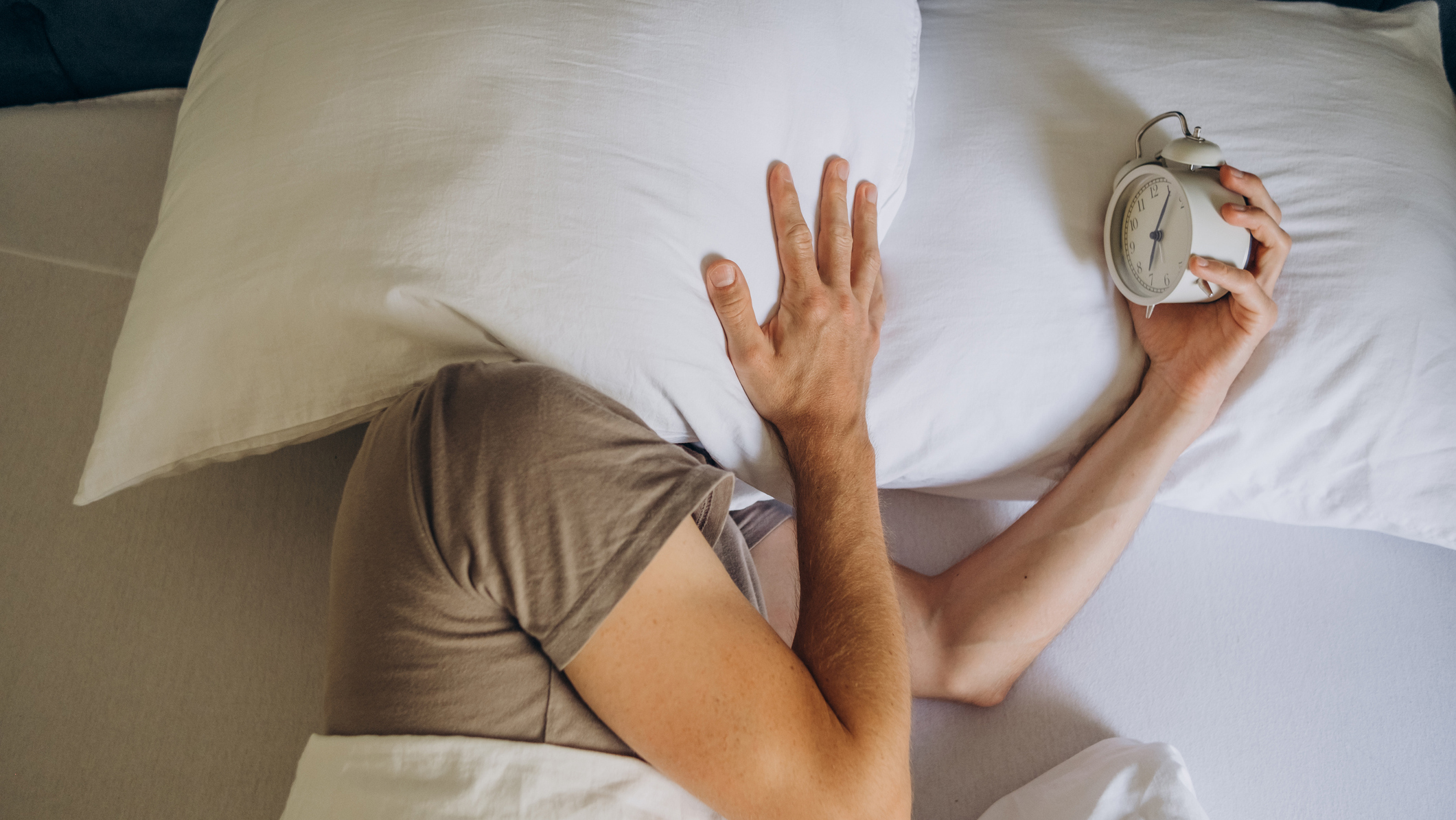
Which hormones affect sleep?
Our sleep is heavily influenced by five key hormones.
1. Melatonin
“Melatonin is the main sleep hormone and it’s produced by the pineal gland in the brain,” explains Dr Olalekan Otulana, a GP and addictions physician at Cassiobury Court.
“It helps to regulate our body’s internal clock and it usually starts rising in the evening as it gets dark. This helps to make us feel sleepy,” he continues.
“Melatonin levels then fall in the morning as light exposure increases.” This is what helps us wake up naturally in the mornings.
Alongside this, higher melatonin levels at night help us sleep through the night, preventing us from waking up frequently so we can achieve better sleep quality.
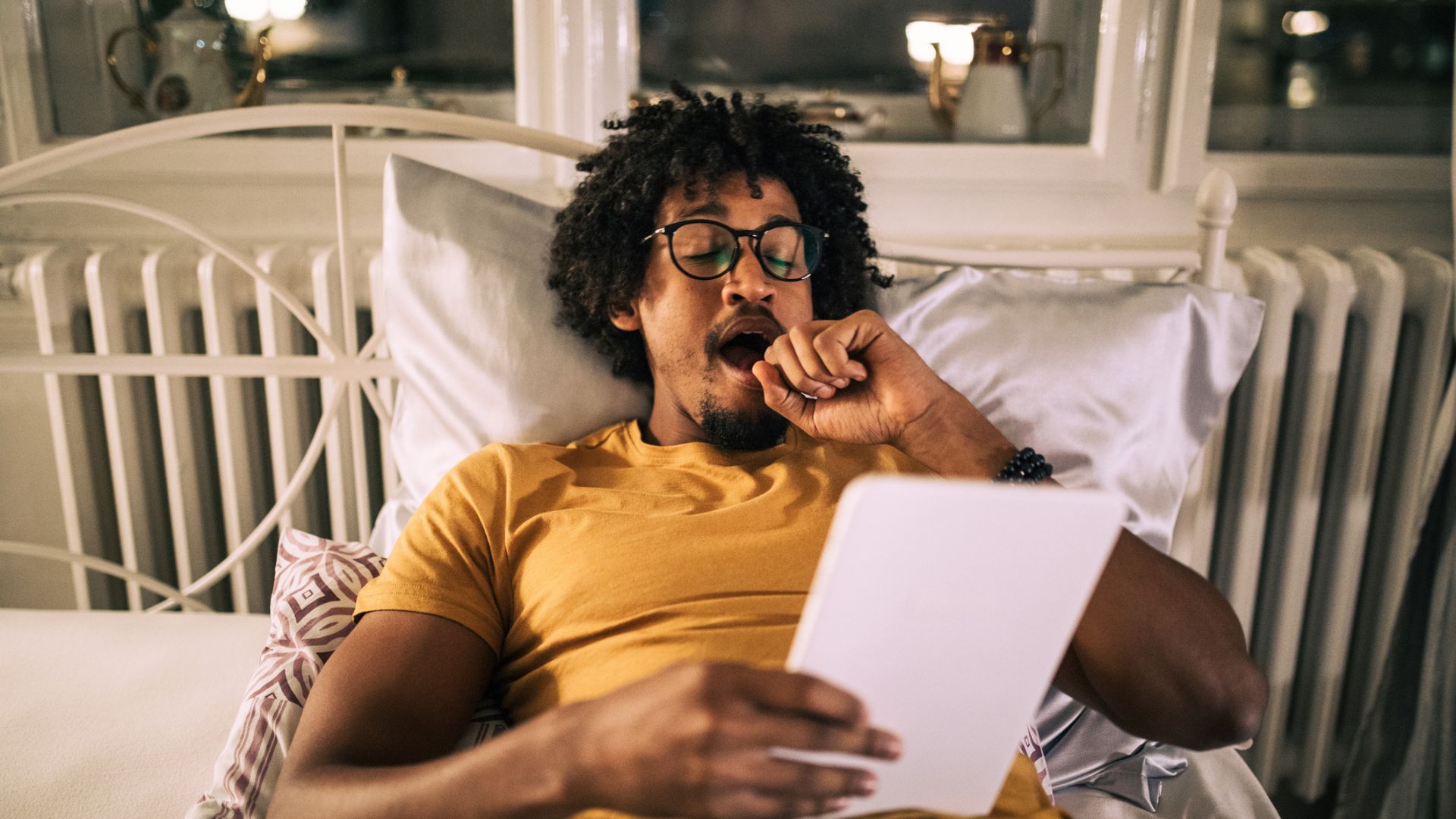
2. Cortisol
“Cortisol is often thought of as a stress hormone but actually, it also follows a daily rhythm,” says Dr Otulana.
“It is typically highest in the early morning to help wake us up and then gradually drops throughout the day.”
Our lowest cortisol level is usually around midnight, helping us achieve deep sleep without nighttime awakenings.
3. Oestrogen
“Oestrogen can have a more stimulating effect as it influences serotonin and other neurotransmitters involved in mood and sleep regulation,” he explains.
“Balanced levels of oestrogen tend to support REM sleep and can improve sleep quality,” the doctor adds.
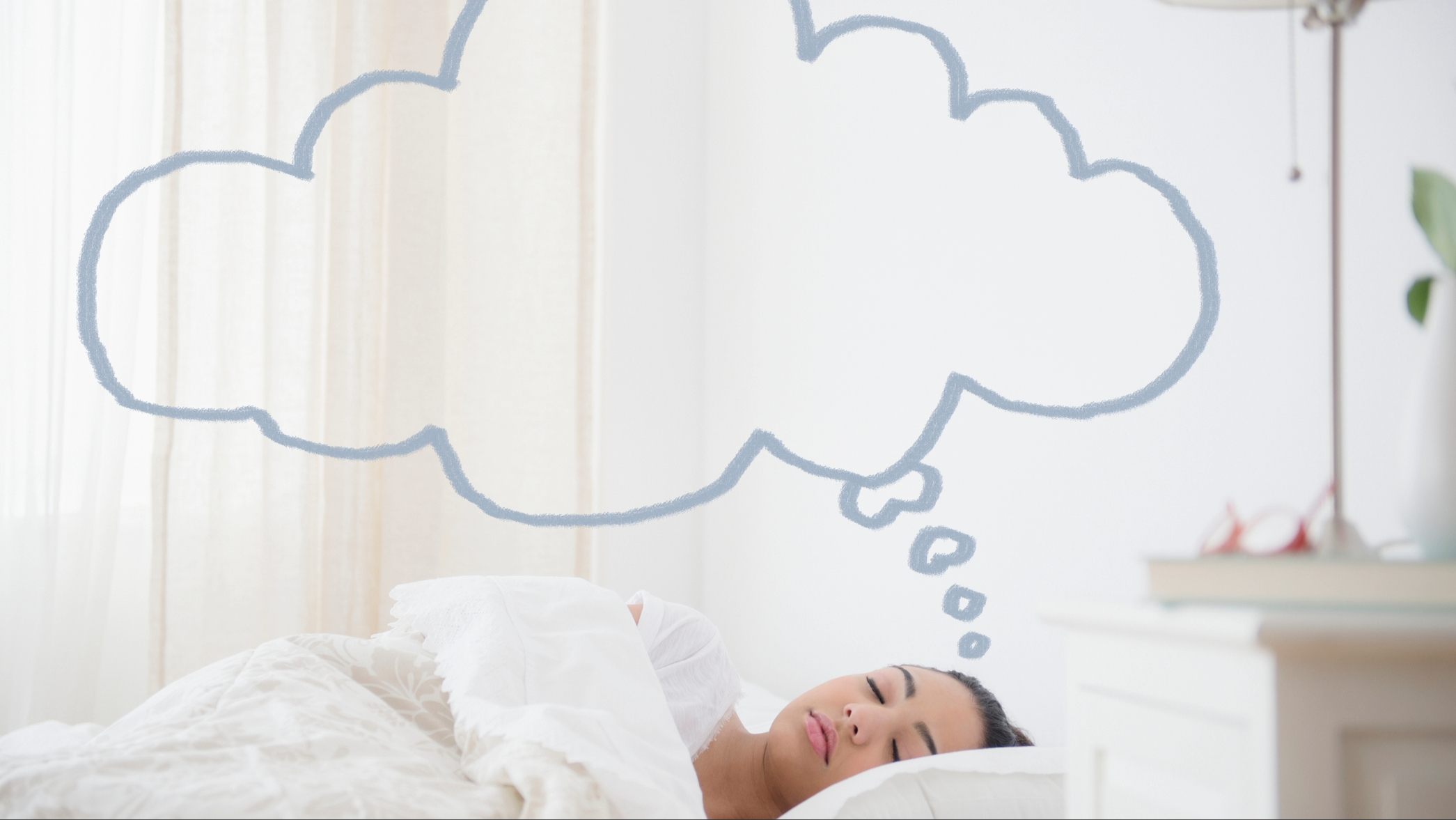
REM sleep is essential for brain health and development as it helps us consolidate memories and learning, as well as process emotional events. Read our guide on how to get more REM sleep if you think you're not getting enough.
“During times of hormonal fluctuation, drops in oestrogen can lead to disrupted sleep and this could lead to waking more throughout the night.”
4. Progesterone
“Progesterone has a calming effect on the brain,” says Dr Otulana.“It enhances gaba-activity (a neurotransmitter that promotes relaxation).”
“So higher levels of progesterone as seen in the luteal phase of the menstrual cycle or during pregnancy, can increase sleepiness and reduce sleep latency,” he explains.
But increased progesterone doesn’t always mean better sleep. Dr Otulana says “this can also lead to more fragmented sleep in some individuals.”
This is because steep rises in progesterone during the follicular phase through the mid-luteal phase of the menstrual cycle has been proven to increase waking after falling asleep.
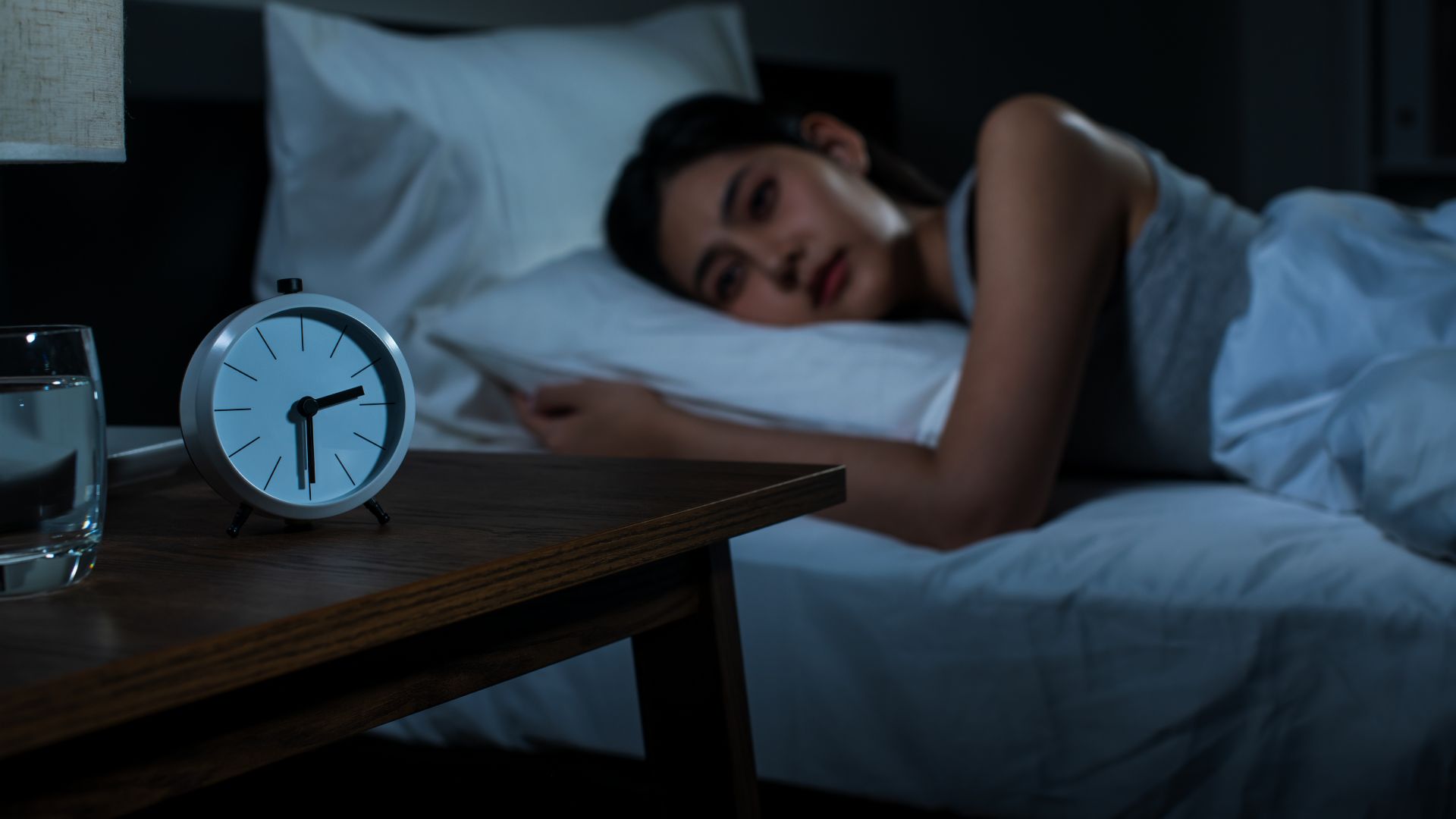
5. Testosterone
Testosterone tends to promote deeper and more restorative sleep, particularly in terms of slow-wave sleep,” explains Dr Otulana.
“Its levels follow a diurnal rhythm where they peak in the early morning (roughly between 6am and 8am) and then gradually decline throughout the day.”
But testosterone levels are a balancing act for sleep. “Too little testosterone can significantly impact the circadian rhythm and lead to insomnia,” explains Lauri Leadley, clinical sleep educator, president and founder of Valley Sleep Center.
“Too much can disrupt sleep patterns and cause frequent awakening through the night,” she adds.
“This kind of sleep disruption makes it difficult to achieve the full sleep cycle, which ultimately helps our body’s cells to regenerate, enables us to dream, create memories and wake up feeling refreshed.”
How to regulate your sleep hormones
While hormones regulate our sleep, it’s a two-way relationship. Quality, consistent sleep will also help regulate our hormones. Here are our top tips for getting effective, restorative sleep that will keep your body clock functioning well.
1. Get enough sleep
It’s often reported that seven to nine hours per night is the golden ticket when it comes to getting enough sleep.
Not getting enough sleep can affect the regulation of your hormones and leave you feeling sluggish. It can also impact your mood, appetite, stress response and metabolism, eventually leading to sleep deprivation.
The trick is to gauge how much sleep you need to feel refreshed the next day. If sleeping 6.5 hours a night is your sweet spot, chances are that’s the right amount for you and you don’t need to worry about trying to eke out more.
2. Keep a regular sleep schedule
Going to bed and getting up at the same time every day, even on weekends, is a big help when it comes to getting regular, quality sleep.
A consistent sleep schedule helps to regulate your sleep-wake cycle and enables key hormones to be released at the right times of day.
So, you’ll feel relaxed and ready to drift off to sleep at night, and energised and refreshed for the day ahead the following morning.
Experts advise that if you do want an occasional lie-in, such as after a late night, to keep this to no more than an hour’s additional sleep so it doesn’t affect your overall sleep/wake cycle consistency too much.
3. Get enough daylight
Kickstart your mornings by opening your curtains or blinds and letting morning light stream into your bedroom as it’s a great way to wake from your slumber. Your internal body clock will love it too!
“Getting outdoors and into natural daylight during the day is another good way to keep your circadian rhythm on track,” says Dr Otulana. Early morning light is usually the best for sleep.
This could include going for a morning run, popping out for a lunchtime stroll or enjoying time outdoors in the afternoon or early evening sun after a busy work or study day.
4. Keep a balanced diet
Eating a balanced diet can benefit your sleep as foods such as lean proteins, complex carbohydrates, and healthy fats, can help to regulate your sleep hormones and improve your sleep quality.
Foods that are high in the sleep hormone melatonin or the sleep-boosting amino acid tryptophan include nuts (particularly pistachios and walnuts), turkey, milk, eggs and tart cherries.
“Be mindful about eating foods that can negatively impact sleep hormones and try not to consume these too close to bedtime,” advises Laurie. “For example, fatty, acidic, spicy and fried foods.” Check out these healthy nighttime snacks for a late-night treat if you're feeling peckish.
Caffeine can also affect your sleep so it’s best avoided in the evening.
“Avoid caffeine late in the day,” advises Dr Otulana, “and keep alcohol to a minimum as both can disrupt hormone patterns and sleep quality.”
5. Keep artificial light out of the bedroom
“Create an environment that is conducive to sleep,” adds Laurie. “A dark, quiet, cool space is a retreat for rest.”
The blue light that is emitted by TVs and smartphones can interfere with melatonin production and disrupt signals to your body that it’s time to sleep.
Blue light actually tricks your brain into thinking that it’s still daytime, delaying your sleep onset time and making it generally harder to fall asleep.
For this reason, Dr Otulana advises avoiding blue light for at least an hour before going to bed. Screens in bed have also been proven to increase insomnia by 59%.
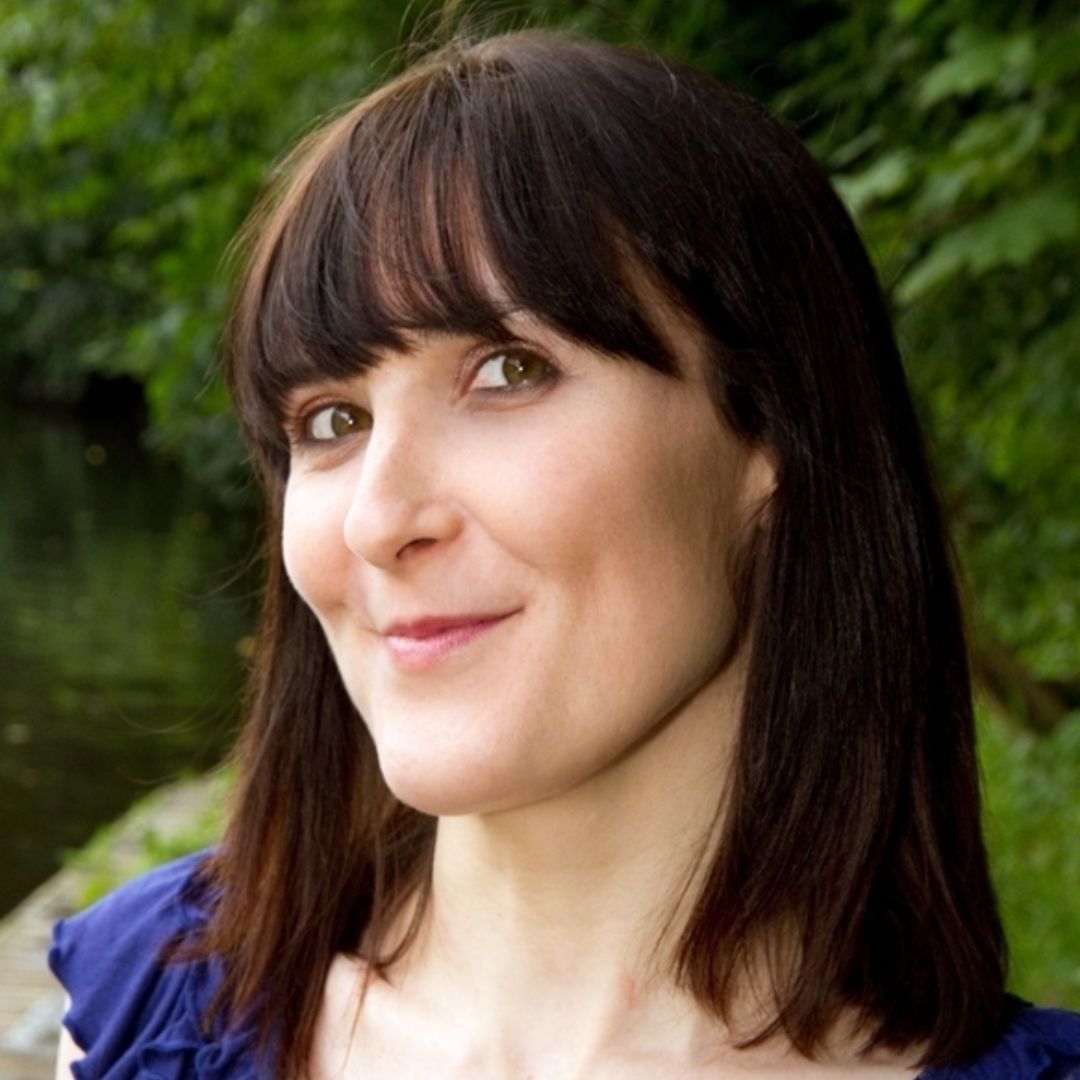
Julie writes about health, wellbeing and medical issues for a wide range of titles including Tom’s Guide, TechRadar, Be Healthy, Top Sante, Doctors.net.uk and many more. She is endlessly curious and loves writing about health as there’s always something new to find out more about. She’s also a member of the NUJ, Guild of Health Writers and Medical Journalists’ Association.
You must confirm your public display name before commenting
Please logout and then login again, you will then be prompted to enter your display name.
 Club Benefits
Club Benefits










